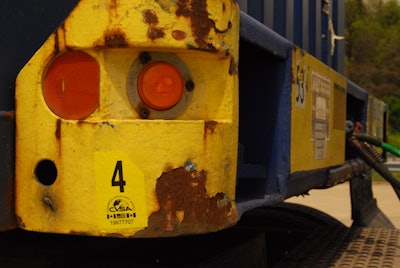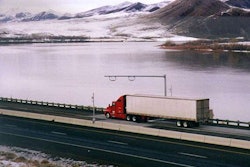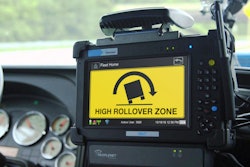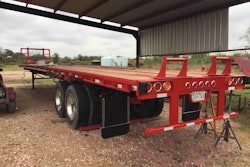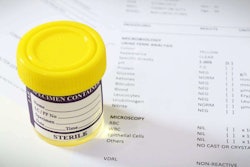Texas intrastate owner-operator Zach Beadle wrote in this weekend with a question: Why did his Inspection Selection System score go to 99? He was notified of this hike by PrePass, who couched it in terms longtime regular readers will be familiar with. The company stated it “seems that I’ve not been inspected enough to suit the regulators,” Beadle said, “and as true as that might be, I have had no citations that put me out of service nor been the cause of any accidents. I have a clean driving record.”
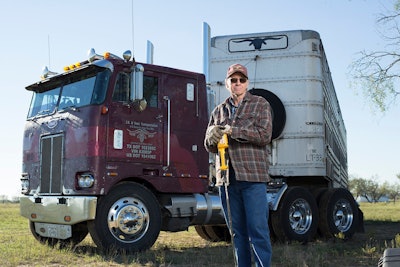 Owner-operator Zach Beadle and his 1976 Peterbilt COE and livestock trailer.
Owner-operator Zach Beadle and his 1976 Peterbilt COE and livestock trailer.Beadle was likewise told the 99 ISS score would “stay that way for 30 days and then I would be re-evaluated and a score of around 74 would be assigned to me in the event that I was inspected often enough and in depth enough for them to see that I am in fact a safe carrier.”
Talking with PrePass, Beadle was assured 74 was something of a good score, though “a 74 in school is just passing, I think I’m better than that!” Beadle quipped. In this case, for one, lower is better, so it’s not like school. And as far as goes the ISS, on which bypass systems like PrePass and Drivewyze in part base their systems, PrePass is correct. As shown in this story from the CSA’s Data Trail series in 2013, carriers with an ISS below 75 can expect to bypass most bypass-equipped scales around the nation 98 percent of the time utilizing Drivewyze, and carriers below 90 generally bypass 95 percent of the time with PrePass. (To find your ISS score, log in through the Compass portal with your DOT-issued PIN. More details via this story.)
So why did the score go to 99 in the first place? Turns out the smallest carriers are in fact targeted by the system for inspection, as I’ve written before, also in the 2013 CSA’s Data Trail series. “Smaller carriers with insufficient data in the federal system [to compute a CSA Safety Measurement System BASIC score] may see on average less utility from bypass systems,” as I wrote. “Every month FMCSA randomly assigns 10 percent of data-insufficient carriers [mostly small operations] an Inspection Selection System score of 99, says Bill Quade, FMCSA associate administrator for enforcement. That score marks the carriers to get many more red lights when approaching scales.”
 Beadle was featured in the January 2016 cover story about building a customer base of direct-ship freight.
Beadle was featured in the January 2016 cover story about building a customer base of direct-ship freight.Low and behold, said Beadle, “the very day before this went into effect, I got called in to the inspection lane at the scale facility just south of Devine [Texas]. I knew I was going to be put on the pit for a Level 1 inspection, but had no worries about the outcome overall. As it is with all equipment, something is always wrong in the eyes of inspectors, but when I saw the inspectors reaching for the CVSA inspection stickers for both my tractor and my trailer, I breathed a sigh of relief and was really surprised because I’ve never been awarded the CVSA stickers before. I’ve had numerous Level 1 inspections, but there was always some little ticky-tacky thing that they didn’t like, and even though I didn’t pass clean, the things they found were very simple problems.”
Sounds like you’re doing more than one thing right, Zach.
In the end, there’s a reason independent owner-operators tend to lead the industry in safety when it comes to crash rates and the like — likewise “data insufficiency,” as FMCSA calls it, in the CSA SMS. It’s because, like Beadle, they have a close handle on their equipment and operations, such that outcomes like the above are the norm. Have you, too, seen one of these lately?:
